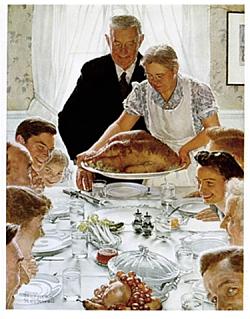 Nothing in the Bible should be more sobering than the reality that some people aren’t going to make it to heaven. Even more sobering is that some of them were once considered part of the in crowd.
Nothing in the Bible should be more sobering than the reality that some people aren’t going to make it to heaven. Even more sobering is that some of them were once considered part of the in crowd.
Now some will protest that Scripture is clear that the saints will persevere. (Hey, that rhymes!) But it also seems clear that the Bible repeatedly notes that some who were at one point counted part of the group were not counted so at the end.
Something happened. Something undeniable.
Claim all you will that those who don’t make it were never part of the group to begin with, but there’s that daunting reality again that a lot of people who now seem out of the group were the same ones we once accepted readily as being in.
Once.
Take care, brothers, lest there be in any of you an evil, unbelieving heart, leading you to fall away from the living God.
—Hebrews 3:12 ESV
Throughout his writings, Paul used the term brothers to refer only to those who were in.
“Then they will deliver you up to tribulation and put you to death, and you will be hated by all nations for my name’s sake. And then many will fall away and betray one another and hate one another. And many false prophets will arise and lead many astray. And because lawlessness will be increased, the love of many will grow cold. But the one who endures to the end will be saved.”
—Matthew 24:9-13 ESV
Context is king. In this context, the King of Kings is talking to the in crowd. They are the ones who will see their numbers dwindle and fall.
For it is impossible, in the case of those who have once been enlightened, who have tasted the heavenly gift, and have shared in the Holy Spirit, and have tasted the goodness of the word of God and the powers of the age to come, and then have fallen away, to restore them again to repentance, since they are crucifying once again the Son of God to their own harm and holding him up to contempt. For land that has drunk the rain that often falls on it, and produces a crop useful to those for whose sake it is cultivated, receives a blessing from God. But if it bears thorns and thistles, it is worthless and near to being cursed, and its end is to be burned. Though we speak in this way, yet in your case, beloved, we feel sure of better things–things that belong to salvation. For God is not unjust so as to overlook your work and the love that you have shown for his name in serving the saints, as you still do.
—Hebrews 6:4-10 ESV
“…as you still do.” What matters in the end is perseverance, and it is clear that some who were once in may not persevere.
“And to the angel of the church in Sardis write: ‘The words of him who has the seven spirits of God and the seven stars. “‘I know your works. You have the reputation of being alive, but you are dead. Wake up, and strengthen what remains and is about to die, for I have not found your works complete in the sight of my God. Remember, then, what you received and heard. Keep it, and repent. If you will not wake up, I will come like a thief, and you will not know at what hour I will come against you. Yet you have still a few names in Sardis, people who have not soiled their garments, and they will walk with me in white, for they are worthy. The one who conquers will be clothed thus in white garments, and I will never blot his name out of the book of life. I will confess his name before my Father and before his angels.”
—Revelation 3:1-5 ESV
A name once written in the Book of Life has the potential to be blotted out if what was once alive becomes dead, if the works once started remain incomplete.
The one who continues to long to remain in Christ will remain there, for no outside force can rip us away from God. But we need to be careful of what we harbor within.
How can you and I fall away from the Lord? It’s scarily simple.
Hoard.
Hoard everything God gives you. Time. Goods. Knowledge. Wisdom. Love. Keep it all to yourself. Build barns and silos to store it all. And if you should dole out a tiny portion of what you have been given, make sure others know how generous you are in doing so. And make sure the knowledge you portion out is used to crush others who don’t have the silo full you do. Also ensure the pittance of love you offer has every expectation of being returned. Then when people don’t treat your generous gift with the appreciation you believe they should, horde more. And don’t ever repeat the mistake of throwing your pearls before those you deem “swine.”
Cultivate cynicism.
Knowing everything means suffering fools, of which there seems to be no end. The person who knows it all can see through it all. Every motive in others becomes clear. Every sell job known for what it is. The cynic claims to see all as it rightly is and calls it out from the lofty grandeur of self-deemed righteousness. Some go so far as to label this “discernment.”
Love only those who love you.
While you’re not casting your pearls of wisdom before swine, don’t give them your love either. Talk about those people. Make sure everyone knows who you think they are. Save your love for people like you; the right kind of people. And since there are usually so few who measure up, most of your love will eventually deepen into further self-love. Because it’s easier to love yourself and leave it at that.
Find a ghetto to dwell in—then never venture out of it.
Lutheran. Charismatic. Calvinist. Paedobaptist. Dispensationalist. And on and on. The Christian life contains all sorts of ghettos. Of course, the one you choose to live in is the best. The others contain nothing but error. Best not to visit them—ever. There’s nothing anyone in those other ghettos can teach you anyway. No sense risking damnation by checking out how the other half lives.
Fight every battle.
It doesn’t matter what the battle is, proving how right you are is all that is essential. Make sure everyone knows where you stand on every position. “Fight the good fight,” right? Take on your enemies and pound them into submission. And if it seems after a while that everyone else is the enemy, chalk that up to the rightness of your cause. Because anyone who is on the side of rightness will be persecuted—or so you keep telling yourself.
Pursue comfort.
Even though you’re fighting endless righteous battles, no need to work up too much of a sweat. Look after yourself. Make sure you have the best of everything. You’re a King’s Kid. You deserve the best. This is especially true of Americans. You’re pretty sure the American Dream is right there in the Bible, so it’s in your best interest to embody it.
Exude righteousness.
Practice your religion before others and make sure they know how well you are doing it and how poor their execution is. Talk about your spiritual giftings all the time. You’re a model. You probably even tithe your mint and dill, though others give you strange looks when you toss part of your spice rack in the offering plate on Sundays. What do they know?
Use the lingo of the in crowd.
When you talk about your religion, use the buzzwords. Often. Because nothing says you’re in like talking in the approved code. In addition, this is a good way to ensure the out crowd stays out.
Find ways around the must-do’s that only the noobs must attend to.
You’ve been around. You’re proven. No need to spend too much time attending to the basics, like prayer and Bible study. Or serving the downtrodden. Leave that to the new guys. You’ve got bigger fish to fry. Besides, you know it all and have done it all already.
Resist reproof.
And the noobs? Who are they to question you? Error is for the other guy. Really, the nerve…
Never question yourself.
Once you’ve arrived, why make trouble for yourself by checking to see if your destination is the correct one after all? The other guy is in the wrong place. He always is.
I’ve heard it said that sarcasm isn’t very Christian.
What seems to be not so Christian is to let oneself fall into the kind of delusion the sarcasm above attempts to pierce. It’s a common delusion though. What makes it really sad is that most people who need desperately to reverse course before they find themselves out of the in group will read that set of warnings above and resist reproof. Because error only and always dogs the other guy. Always.
I end by saying that to the person afflicted by the delusional thinking depicted above, all change is bad. And yet a great swath of Christianity in the West needs desperately to change. This doesn’t mean abandoning solid doctrine, just bad practice based on self-righteous misunderstandings of the words of God.
Too many of us have become the living embodiment of the Pharisees we mock. The mirror of Scripture and the inner prompting of the Holy Spirit should reveal us for what we have become.
Unless it is already too late.
***
Slowly to Oblivion: How Christians Fall Away from the Lord, Part 2


 those great Christian people treated them as if they were.
those great Christian people treated them as if they were.